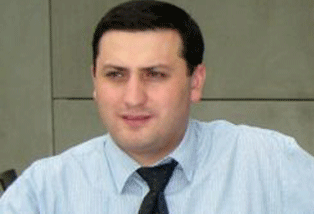On April 8, 2011 News Agency Interpresnews published interview with the assistant to the chairman of the penitentiary department of Georgia Anton Kelbakian: “Penitentiary Ministry about Public Defender’s Report”.
Due to the importance of the issue, we think it is important to respond to the interview and show the position of the Public Defender and his office about certain issues.
Most part of the Public Defender’s Report is dedicated to the problems in the penitentiary system; every problematic issue is analyzed in details and grounded by concrete facts. Mostly, the allegations of the representative of the penitentiary department about the Public Defender’s Report are groundless and do not reflect real situation. In order to verify our opinions, we would like to publish several extracts from the Report which will once again describe the concrete problems of the system.
Number one problem is increased mortality among prisoners. The Public Defender categorically denies the allegation that “increased mortality among prisoners is proportional with the number of prisoners” in the penitentiary system.
In Europe, average mortality level among prisoners is 33.2 out of 10 000 prisoners though according to the recent report (2008) of the Council of Europe, the mortality equals to 53.3 in Georgia.
As for the artificial reduction of number of dead prisoners, it should be noted that as a rule, the information provided by the Ministry of Corrections and Legal Aid does not contain the data about those prisoners who died in city hospitals.
The case of prisoner Nadim Tsetskhladze was example of similar situation.
We declare with full responsibility that N. Tsetskhladze was not on the list of dead prisoners, provided by the Ministry; his name was not mentioned in the letter sent by the jail hospital either. Unfortunately, it is not only case when the number of dead prisoners is artificially reduced and this negative practice has been implemented by the system for several years already.
It is noteworthy, that the Report of the US State Department states that 75 prisoners died in the Georgian detention settings in 2010 according to the information provided by the Ministry of Corrections and Legal Aid of Georgia; it once more demonstrates the attempt of the Ministry to artificially reduce the number of dead prisoners and hide real situation.
We also focused on placement of dying prisoners in medical clinics.
In 2010, those prisoners, who were taken to city hospitals and later died in it, made up the 46% of total dead prisoners.
Big part of prisoners, who died in city hospitals, did not have any particular diseases; in fact, their health conditions were particularly aggravated due to inadequate medical treatment. Naturally, early diagnostic and adequate treatment could avoid death in most cases. The Public Defender’s Report analyzes this problem in details.
We would like to declare again that the Public Defender appreciates the ongoing reforms in the penitentiary system though partial infrastructural improvement cannot resolve problems of medical service in custodies.
Scheduled and random monitoring of the Prevention and Monitoring Department of the Public Defender’s Office demonstrated that despite several projects for the prevention of tuberculosis in Georgian prisons, the problem increased instead solution. We hope active cooperation between the Ministry of Correction and Legal Aid and the Ministry of Labor, Health and Social Welfare for the improvement of the medical system in the penitentiary system and in particular for the fight against tuberculosis, will have real output – effective measures will be taken to resolve the abovementioned problem. The reports of the Public Defender always underscores that involvement of doctors should be more and more active in order to improve the situation.
Most prisoners died because of ischemic heart diseases in 2010. It does not mean this disease was reason of their deaths. The report clarifies that coexistence of similar diseases with some other new diseases, like tuberculosis, complicates and speeds up negative result.
Medical documents of the penitentiary system do not comply with the format of medical documents approved by the Minister of Labor, Healthcare and Social Welfare. Introduction of these documents dissociated the penitentiary system from the health ministry. Consequently, we cannot say the innovation is progressive.
Medical centers are not equipped properly. The monitoring showed that almost no clinics had even electro-cardiographs. First-aid medical tools and equipments were not found in any medical clinics expect medical clinic # 18.
We would like to stress out that according to the list of medical professions approved by the minister of healthcare a doctor of general profile does not exist in Georgia any longer. The penitentiary department stated they are not implementing the health reform in cooperation with the health ministry to train similar doctors.
Illegal medical activity is also serious problem. It is noteworthy that illegal medical activity is not a mistake but it is a crime according to the Georgian Law. The Public Defender’s Office largely discusses the ineffective mechanisms to detect and fight against the crime.
Another problem is ill-treatment of prisoners, late expertise and prolonged investigations. Similar problems are highlighted in several reports.
This is the short list of those problems which are urgent in the Georgian penitentiary system.
At the end, we would like to point out that when speaking about lack of positive tendencies in the Public Defender’s Report, we should remember the requirements of the law. The Public Defender’s Report is not a document, which aims to describe positive steps taken by any institution. Just the opposite, according to the law, “The annual report of the Public Defender shall list those public authorities, national or local, public officials and legal persons that systematically violate human rights and freedoms and who do not adopt the recommendations of the Public Defender concerning measures for the redress of the infringed rights” (Organic Law of Georgia about Public Defender of Georgia, Article 22, Part 2).




